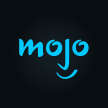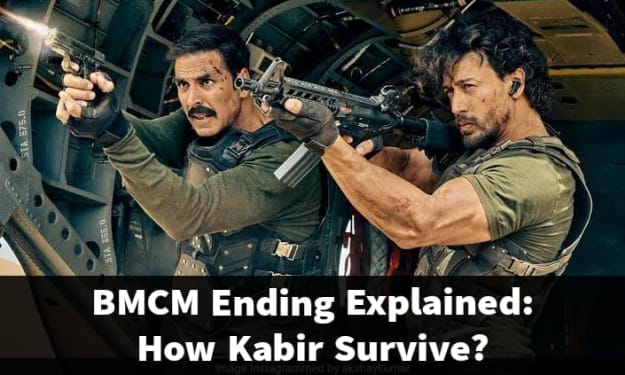Whatever happened to doing things for real? Welcome to WatchMojo.com, and today we’re counting down our picks for "Top 10 Worst Blue/Green-Screen Effects in Movies." For this list, we’ll be looking at the movie sequences on the big screen that filmmakers created using chroma key effects, whether it was a green screen, blue screen, or any other color, with disastrous results.
However, we won’t be including indie films like The Room, B-movies like Shark Attack 3: Megalodon or movies that predate the 1980s like Dr. No, as the effects that were available to them were not on par with the films that made the list. As we’ll be showing big moments from several of the films we’re featuring, a SPOILER ALERT is in order!
How could filmmakers possibly up the ante on the high octane action seen in the original Die Hard? While they came up with some interesting ideas, things didn’t always end up entirely convincing—especially as the film aged. The worst offender is a scene where John McClane must escape an airplane that’s about to explode via ejector seat. While the sequence is undoubtedly riveting, the effects are not: Willis was shot in front of a blue screen, where he was attached to a machine that rotated him again and again, with some fancy camera work adding to the effect. Willis grimaces admirably, but the effort to superimpose that image over that of a previously exploded plane let him down.
We loved this Jim Henson flick as kids; but when we grew up and took off our rose-colored glasses, we saw some flaws. Case in point: The… uncomfortable effects used in this song and dance sequence featuring the Fireys. Because Muppets are puppets and don’t actually move on their own, filmmakers needed to find a way to hide the puppeteers who were maneuvering them. Because it was the 80s and blue/green screen technology wasn’t as advanced as it is today, they dressed the puppeteers in black and draped the background in black velvet so it looked like the monsters were singing, dancing and removing body parts on their own. However, the result was a bit of a mess, with Fireys seemingly floating all over the place.
For the first three big screen Star Trek outings, effects geniuses Industrial Light & Magic had brought things to life; but, they were busy with Indiana Jones and the Last Crusade and Ghostbusters II when The Final Frontier was in production, so filmmakers hired a lesser-known, less expensive team and completed as many effects as possible in-camera. A glaring issue left in the film was the shot of Shatner scaling El Capitan in Yosemite and falling, only to be caught by Spock and his trusty levitating boots. Shatner was filmed falling in front of a blue screen, with shots of Yosemite later edited in, but the end result is a classic blue screen blunder if we’ve ever seen one.
Dubiously set in a Gotham City that was riddled with neon, Batman & Robin relied heavily on visual effects, using 450 in total—which was roughly 150 more than Batman Forever. Director Joel Schumacher reminded his actors before every take that the movie they were making was “a cartoon,” and that set the tone for this motorcycle race and its laughable chroma-key climax, where Dick Grayson saves Barbara Gordon from certain doom high above the city. Though it may not be the most laughable effect of the film, the keyed-in background does not seem in sync with Alicia Silverstone as she hangs perilously from great heights. No wonder this movie killed the Batman franchise…
Indiana Jones is a high-profile action franchise known for its stunts, but his first film appearance in 19 years didn’t do the beloved character justice. Steven Spielberg made it clear before production began that this newest entry would use as little CGI as possible. Well, practicality and computer-generated animals seemingly won out over artistic integrity, and lots of CGI and fake-looking green screen effects ended up in the final edit. Probably the worst sequence in the film is the climactic chase through the forest, which involves CGI trees and animals, a cheesy high-speed sword fight and green screen that looks bafflingly… off. You’d think guys like Spielberg and George Lucas would have this kinda thing down by now.
A lot of time and effort was spent on perfecting the visual style of this advanced version of 1939, and we applaud the gutsy decision to do something so different. Shot almost entirely on blue screen soundstages in under a month, Sky Captain was an interesting experiment. Unfortunately, in this case, it failed: with very few physical props or sets, the actors were basically the only aspects of the film not created by a computer. That meant approximately 2,000 CGI shots, plus filmmakers ended up having to write code to pull it off. Impressive? Absolutely. But we have to hold the results to the same scrutiny as other films, and it just doesn’t stack up.
We can basically blame the bad effects in this movie on one thing: the budget. Whereas the original 1978 Superman was renowned for its impressive visual effects, those effects got less remarkable as the franchise wore on. By the time the fourth film rolled around, filming had moved out of New York to England, which was haphazardly transformed into Metropolis mainly with the help of a few pigeons. But Superman’s characteristic power of flight was perhaps the worst casualty, with those effects looking so amateur you might forget you’re watching a Hollywood film. With the actors lit differently than those images appearing on the screen in the background, we wouldn’t blame you for thinking you could do a better job at home.
Robert Rodriguez is the visionary filmmaker behind films like Sin City and Desperado, so it’s strange that in between those two imaginatively shot films he began a film franchise that proved to be the opposite. All told, all four Spy Kids films had a budget of $154 million, which—in this day and age —is a fraction of some standalone films. But, according to Rodriguez himself, “Creativity, not money, is used to solve problems.” That may’ve made the franchise a cash cow, and the bad effects may even be invisible to their target audience, but as adults we can’t help but look at the green screen scenes throughout this series and think that “Spy Kids” is a lowlight in an otherwise impressive career.
Before we reveal our top pick, here are a few honorable—or in this case dishonorable—mentions:
- Geonosian Execution Arena, Star Wars Episode II: Attack of the Clones (2002)
- Ahead of the Wave, The Last Airbender (2010)
- Lame Stampede, King Kong (2005)
When Milla Jovovich signed on to star in this film, we can only assume she had no way of knowing how terribly put together the end result would be. Less convincing than an animation your cousin made by messing around on his computer for half an hour, very few of the effects in this relatively low-budget action flick up under scrutiny. While the library fight is certainly painful to watch, it’s the sequence where a motorcycle drives up the side of a building that stands out the most. With the film’s studio, Screen Gems, cutting time and story elements from the film’s plot, Ultraviolet had a lot to make up for and serves as a cautionary tale of what not to do.
Do you agree with our list? What’s the worst blue or green-screen effect in movies? For more fun top 10s published daily, be sure to subscribe to WatchMojo.com.
About the Creator
WatchMojo
Bringing you new top 10s every day. Subscribe today on Youtube.






Comments
There are no comments for this story
Be the first to respond and start the conversation.